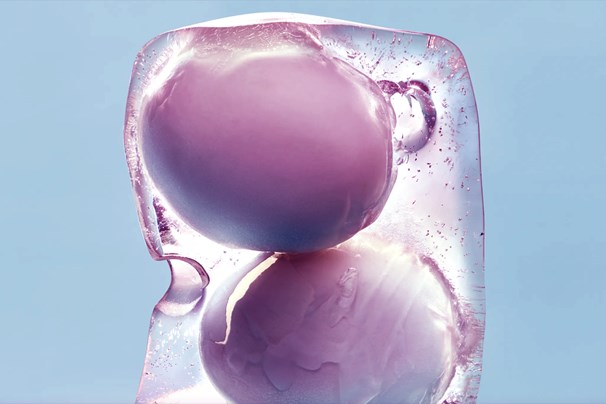By Iris Farrou
14 Apr, 2023
Health Conditions and Pregnancy, Pregnancy, Procedures, Queer Health, Reproductive health, Surrogate, Women's Health
Buffalo NY, Cryogenic, Egg Freezing, Embryo Banking, Embryo Freezing, Fertility, Fertility Assistance, Fertility Preservation, Freezing My Eggs, How to save my eggs, Infertility treatment Buffalo, Oocyte Cryopreservation, Pregnancy and Infertility

Many people consider the choice of freezing their eggs so they can retrieve them at a later time and start a family. This process is, nowadays, more common than it used to be; there is more information available for people to become aware of the pros and cons, there are more facilities that can store your eggs at an affordable price, and more professionals will suggest it if you want to have your own family later in life, or are undergoing treatments that may affect your fertility.
When Should I Consider it?
Most cis-women reach the peak of their fertility at age 30. While eggs continue to be produced and can be retrieved after that age, our egg production drops significantly around age 37, and completely stops when entering menopause–usually between 45-55 years of age. Patients who are experiencing severe health concerns that may affect their fertility– such as undergoing chemotherapy, having Polycystic Ovarian Syndrome, or endometriosis– may want to consider undergoing fertility treatments and retrieve their eggs for freezing. Egg freezing is also common among individuals who are undergoing hormone replacement therapy.
What is the Process?
It is quite a straightforward process to freeze your eggs, so don’t be alarmed by the terminologies used or the clinical equipment needed. In fact, it is very similar to the process of in-vitro fertilization, with the difference being that the eggs are not fertilized immediately, but frozen. Most cycles are complete in about 2-3 weeks.
- The first step would be to meet with a fertility specialist to discuss your desire to freeze your eggs. Then, you will schedule an exam for complete medical history, bloodwork, and hormone testing. Your doctor may also recommend a transvaginal ultrasound to assess your ovarian reserve.
- You will need to monitor your menstrual cycle and determine the exact dates when you are ovulating. To get more accurate results, your doctor may recommend birth control. After that, you will start stimulating your egg production.
- Most commonly, you will start by injecting 2-3 hormone medications a day for about ten days. This will encourage a group of eggs to develop at the same time.
- To track the ovulation and development of the eggs, you will have frequent blood work done and 4-6 pelvic ultrasounds.
- Once your eggs have matured, they will be retrieved. This involves an ultrasound-guided surgical procedure that takes 20-30 minutes under anesthesia.
And you will have reached the final step! Once an embryologist confirms the eggs are mature, which means they will have the potential to be fertilized, your eggs will head to their deep freeze home: liquid nitrogen tanks in an embryology lab.
https://www.hopkinsmedicine.org/health/wellness-and-prevention/freezing-eggs-preserving-fertility-for-the-future
https://www.healthline.com/health/egg-freezing-process#timeline
More
 This year marks the 25th anniversary of National Infertility Awareness Week, held from April 20–26, 2014. Sponsored by RESOLVE: The National Infertility Association, this year’s slogan is “resolve to know more.”
This year marks the 25th anniversary of National Infertility Awareness Week, held from April 20–26, 2014. Sponsored by RESOLVE: The National Infertility Association, this year’s slogan is “resolve to know more.”
The stated goal of NIAW is to raise awareness about the disease of infertility and encourage the public to understand their reproductive health.
What does this mean?
While many people may think that infertility affects only women, it also impacts men, and healthcare and mental health professionals of both sexes. One in eight U.S. couples of childbearing age is diagnosed with infertility—7.3 million women in the U.S. and their partners, which constitutes approximately 12% of the reproductive-age population. Women and men are equally affected: one third of infertility cases can be attributed to female factors, one third to male factors, and one third a combination of female and male factors or unexplained.
The media tends to focus only on age-related infertility issues or on those women who take extreme measures, like “Octo-Mom,” but the truth is that infertility affects women of all ages and backgrounds. And not all women can afford infertility treatment.
Insurance coverage for infertility is only available in 15 out of 50 states in America. And while cost information is hard to come by, Resolve has put together the following estimates:
- Average cost of an IUI cycle: $865; Median Cost: $350
- Average Cost of an IVF cycle using fresh embryos (not including medications): $8,158; Median Cost: $7,500
- Average additional cost of ICSI procedure:$1,544; Median Cost: $1,500
- Average additional cost of PGD procedure: $3,550; Median Cost: $3,200 (Note: Medications for IVF are $3,000 $5,000 per fresh cycle on average.)
When insurance doesn’t pay, those costs are borne by the couple attempting to get pregnant.
Resolve also hopes that NIAW will raise awareness of the options available to women or couples who cannot conceive without assistance. In addition to fertility medications and assisted reproductive technology such as intrauterine insemination (IUI) and in-vitro fertilization (IVF), these options include:
- Adoption
- Donor Options
- Living Childfree
- Surrogacy
Finally, NIAW helps to educate women on their bodies, providing basic information on the female reproductive system and how conception occurs, and more specific information on ovulation and fertility, the menstrual cycle, the male reproductive system and hormones in both genders.
To find out more about National Infertility Awareness Week, visit their website.
At Chouchani, Sayegh and Bagnarello, we are committed to helping our patients with family planning and infertility. Please contact us today to talk with one of our knowledgeable OB-GYN doctors in Western New York. We have three convenient locations across Western New York.
More


